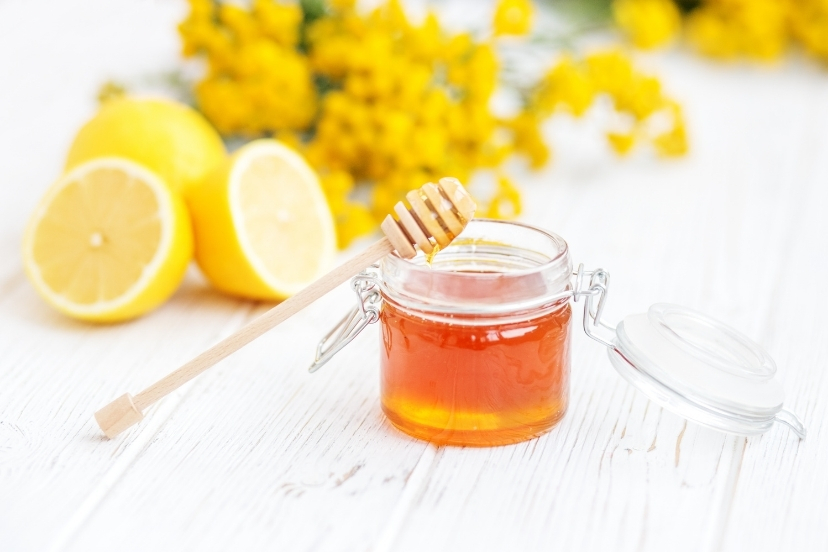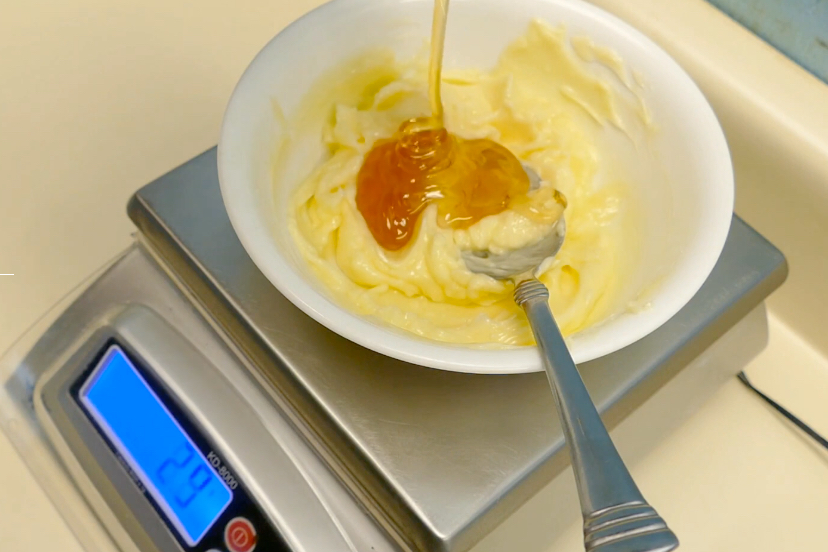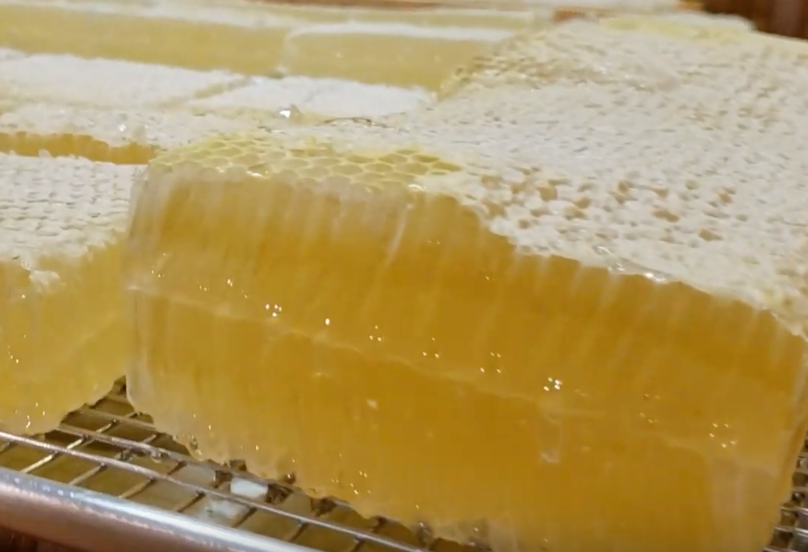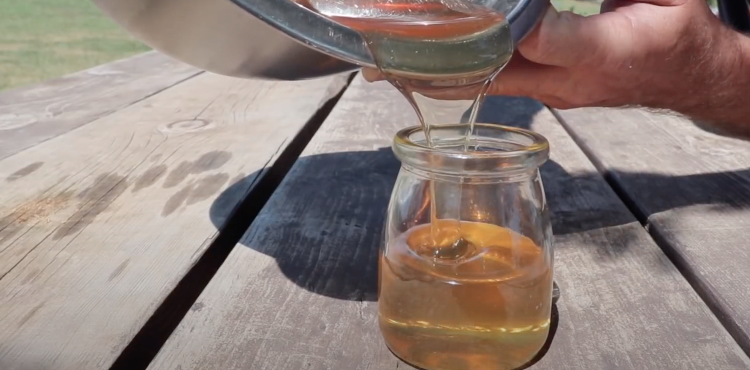The most obvious of honey facts is that it’s really delicious stuff. But you already know that!
There are some other facts about honey, though, that you might not be aware of. Some that you might find quite interesting…
What is Honey?
Among the most basic of honey facts is the simple explanation of just exactly what honey is.
 Honey is essentially the condensed nectar of flower blossoms. Nectar is a sugary liquid secreted by blossoms to attract pollinating insects such as honey bees.
Honey is essentially the condensed nectar of flower blossoms. Nectar is a sugary liquid secreted by blossoms to attract pollinating insects such as honey bees.
Though the flower ‘gives’ a visiting honey bee the nectar, it ‘gets’ something in return. Because in the process of collecting the nectar, the bee (both intentionally and unintentionally) collects some of the flower’s pollen, and deposits it at the next flower the bee visits.
So in exchange for the life-sustaining nectar, the honey bee performs a life-sustaining service for the flower: It distributes the flower’s pollen, enabling the production of seeds and the perpetuation of the species.
Turning That Nectar Into Honey
When the honey bee returns to her hive with a load of nectar, the nectar is processed into honey.
The biggest change marking the transformation of nectar into honey is a huge reduction of the moisture content of the nectar. This changes the nectar from a water-like consistency to the syrupy-thick consistency of honey.
(That’s not the only change that occurs in making honey out of nectar. Read more about how bees make honey…if you dare!)
Not All Honey is the Same
The color, flavor, aroma and consistency of honey are all dependent upon the type of plant that was the source of the nectar.
Because of that, there’s a huge range of varieties of honey to choose from – many as different as night from day.
Buckwheat honey, for example, is a very thick, strong-flavored, dark-colored honey (almost black).
But alfalfa honey has a delicate, mild flavor, with an almost water-white color.
So if you happen to be among the EXTREME minority of people who don’t like honey, perhaps you simply haven’t tasted the right kind of honey.
There are likely at least a few thousand varieties you haven’t sampled yet!
Why do Bees Make Honey?
One of the most important of honey facts – from the perspective of the bees, at least – is that honey is essential to their survival.
Honey and pollen are the honey bees’ primary sources of nutrition.
And during the growing season when plants are producing nectar, honey bees literally work themselves to death to gather as much nectar as possible.
Very strong colonies have been known to store-up hundreds of pounds of honey within just a few days time.
They work with such intense urgency because the survival of the colony depends upon storing honey for the winter.
The Honey Must Last Until Spring…
Once nature’s bounty comes to an end, and the nectar secretions dry up and winter sets in, the only source of food for the colony is the honey they’ve managed to store.
With enough food for energy, the bees can survive incredibly cold temperatures. So if the honey lasts until spring, the colony survives for another year.
But if the honey runs out before winter releases its icy grip on the land, the colony will perish.
As a beekeeper, I don’t know if there’s a more heartbreaking sight than a colony that has died of starvation.
When you pull out a comb from the dead hive, you’ll find most of the lifeless bee bodies in the cells of the comb, head first, with the rear end of the bee sticking out of the cell.
That’s because they died in one last desperate effort to find a trace of honey to lick off of the cell floor.
Just one drop of honey found would mean another day or two of life.
You might also be interested in:
Want to know the facts about how bees make honey? I’ll tell you…if you’re sure you want to know!
Heard of infant botulism? Many people haven’t. But if you have children less than one year of age, it’s important for you to know that honey has been suspected of causing botulism in very young children.
Honey nutrition – two words that might not often be thought of together. But honey is far from a nutritionally void sweet. In fact, the nutritional value of honey makes it as good for you as it is to you. One of the most important of honey facts!
The issue of honey vs sugar is one that comes up often. It’s not surprising, since many people are trying to reduce their sugar intake and are looking for a sugar alternative. But is honey better?




